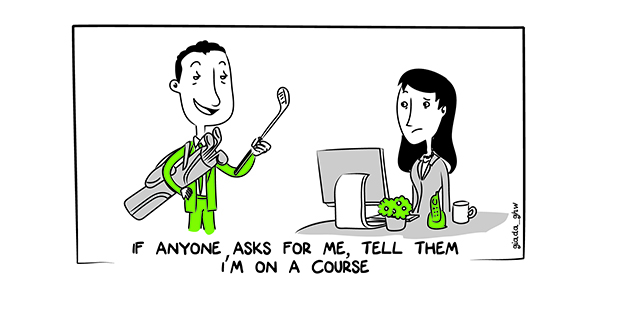Diversify or Specialise? Small Business Dilemma

Ever heard the expression "an inch wide and a mile deep"? I use this phrase a lot when talking about the range of products or services that a small business offers. More often than not when I speak to them, small business owners are selling whatever a customer is prepared to pay them for. This is understandable to a degree. At the beginning of a business especially, it is tempting to do anything that pays as money is in short supply and anything that pays the bills is a good thing.
The Importance of Focus for Small Business
When a client or potential client asks me what I think of their product or service range, more often than not my reply is that I think it is too broad. Their range is often a mile wide and an inch deep. Revenue growth has stalled, margins are being squeezed and suddenly there is a bit of a panic. The temptation is to diversify further, chasing the pound wherever it might be. I almost always advise against this. What’s the point in doing a hundred different things but doing none of them well? What’s the point of selling hundreds of things but not being able to sell them at a reasonable margin as your purchasing power is split across too many suppliers to achieve any significant volume discount? What’s the point in having so many products or services that it is impossible for a customer to remember what you sell or do? It seems a compelling argument (to me at least!).
However, there is a competing theory that deserves our attention. Harry Markowitz won a Nobel Prize in 1990 for his contribution to Portfolio Theory. Portfolio Theory is a great concept and one intuitively understood by small business owners. Every pedestrian in any major city across the world will have seen small business owners intuitively applying this theory. While the weather is fine, street vendors sell their usual wares, but at the first sign of a storm cloud, it seems that suddenly everyone is selling umbrellas. It’s easy to admire the wisdom of these entrepreneurs. On the face of it, it seems prudent to keep a supply of umbrellas on hand as a hedge against changing circumstances. A varied portfolio of products will have a collectively lower risk than any individual product. That is the very essence of portfolio theory. Given that it appears riskier to put your eggs all in one basket, why would anyone with the means to do so not maintain a portfolio?
Diversify or Specialise?
The question is then, in terms of our product or service strategy at least, should we focus or should we diversify?
My opinion for what it is worth is that too much diversification dilutes the company’s resources, its processes and its priorities. It dulls the mind and it weakens the brand. I understand the appeal of diversification and portfolio thinking intellectually but I dislike it at an emotional level. Entrepreneurs that are passionate about their products and services are not looking to hedge their bets with plan B, C and D. Instead, they have the confidence to call the winners and the losers from the outset.
Ultimately, I think that the choice to focus or diversify can be used as an indicator of why companies exist in the first place. I believe companies that exist primarily to make money succumb more easily to the temptation to diversify. It’s hard to imagine Walt Disney, the man who said "I make money to make more movies", having chosen to hedge against a downturn in the film industry by setting up a logistics company. It’s hard to imagine Mark Zuckerberg, the man who recently said "we don’t build services to make money; we make money to build better services", diversifying his business interests in order to compete with Jeff Bezos at Amazon. These businesses have a sense of mission and contribution that is larger than the fixation on the next set of quarterly financials that typifies publicly owned companies such as theirs.
My advice for what it’s worth: Make your business "an inch wide and a mile deep". Perfect your craft. Rise to the very top of your field. Commit to being the best you can be at what you do rather than chase the almighty pound whichever way it seems to be going. In the long term, you’ll be glad you did.
